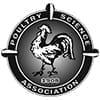Researchers harness genomic tools to shed light on egg yolk size - Interpretive Summary
Published: October 6, 2021
By: https://poultryscience.org/
by Sam Shafer
The best part of brunch? Rich, melt-in-your-mouth egg yolks.
Egg yolks are nutrient-dense and the main source of an egg’s flavor. Hens make egg yolks of different sizes, but larger yolks can mean that a hen has a lower feed efficiency—the ability to convert what it eats to egg yield.
Luckily, new genomic sequencing tools may make it possible to devise new breeding strategies to improve egg yolk size without requiring more feed.
In a new Poultry Science® study, researchers at China Agricultural University report that a higher yolk percentage in chicken eggs is associated with the expression of several genes that affect female reproductive performance, including the growth and development of follicles. This finding underscores the importance of investigating the genes underpinning high yolk percentage traits.
“Investigating the molecular mechanisms of high yolk percentage traits will allow breeding strategies to be optimized to alter the percentage of yolk in chicken eggs,” write study authors Zhang et al.
Poultry scientists have worked to improve egg weight, a valuable metric that increases with yolk weight. Until the new study, however, the genes regulating yolk percentage (how much of the egg is made up of yolk) has not been investigated as an independent variable.
For the new study, the researchers measured the egg quality of 12 Wenchang laying hens, a local breed in Beijing, through their complete laying period. The researchers then used RNA sequencing (RNA-seq) to identify differences in gene expression in cells from the ovaries of hens in the high- and low-yolk percentage groups.
“These methods can provide a snapshot of all the gene expression profiles in a tissue and an insight into the gene functions pertaining to a particular trait,” explain the study authors.
This sequencing helped the researchers uncover a pool of 362 differentially expressed genes (DEGs) between the two hen groups. By mapping where these genes sat in relation to genes for the known “yolk weight trait SNP,” the researchers identified seven candidate genes that appear involved in yolk accumulation.
These seven candidate genes are linked to the development of follicles (the structures in the ovaries that govern ovulation) early in a hen’s maturation, and the genes are known to support cell transport, cell proliferation and differentiation. The researchers also found that some expressed genes participate in liver lipid metabolism, cell development, and hormone secretion regulation, which may affect the process of yolk formation
“The findings of this research provide an important basis for understanding the biology of poultry yolk deposition and clarifying the biological functions and processes of the DEGs,” write the study authors. “Studies such as this have been lacking in the study of PY [percentage of yolk], and our study provides a reference for future research.”
What does this study mean for producers?
- Scientists have identified a group of genes that may control what percentage of an egg is made up of the egg yolk.
- This research could guide breeding programs aiming to increase yolk size without compromising feed efficiency.
The full paper, titled “Screening and validation of candidate genes involved in the regulation of egg yolk deposition in chicken,” can be found in Poultry Science® and online here.
DOI: 10.1016/j.psj.2021.101077
Source
https://poultryscience.org/Related topics:
Mentioned in this news release:

Recommend
Comment
Share

Would you like to discuss another topic? Create a new post to engage with experts in the community.



